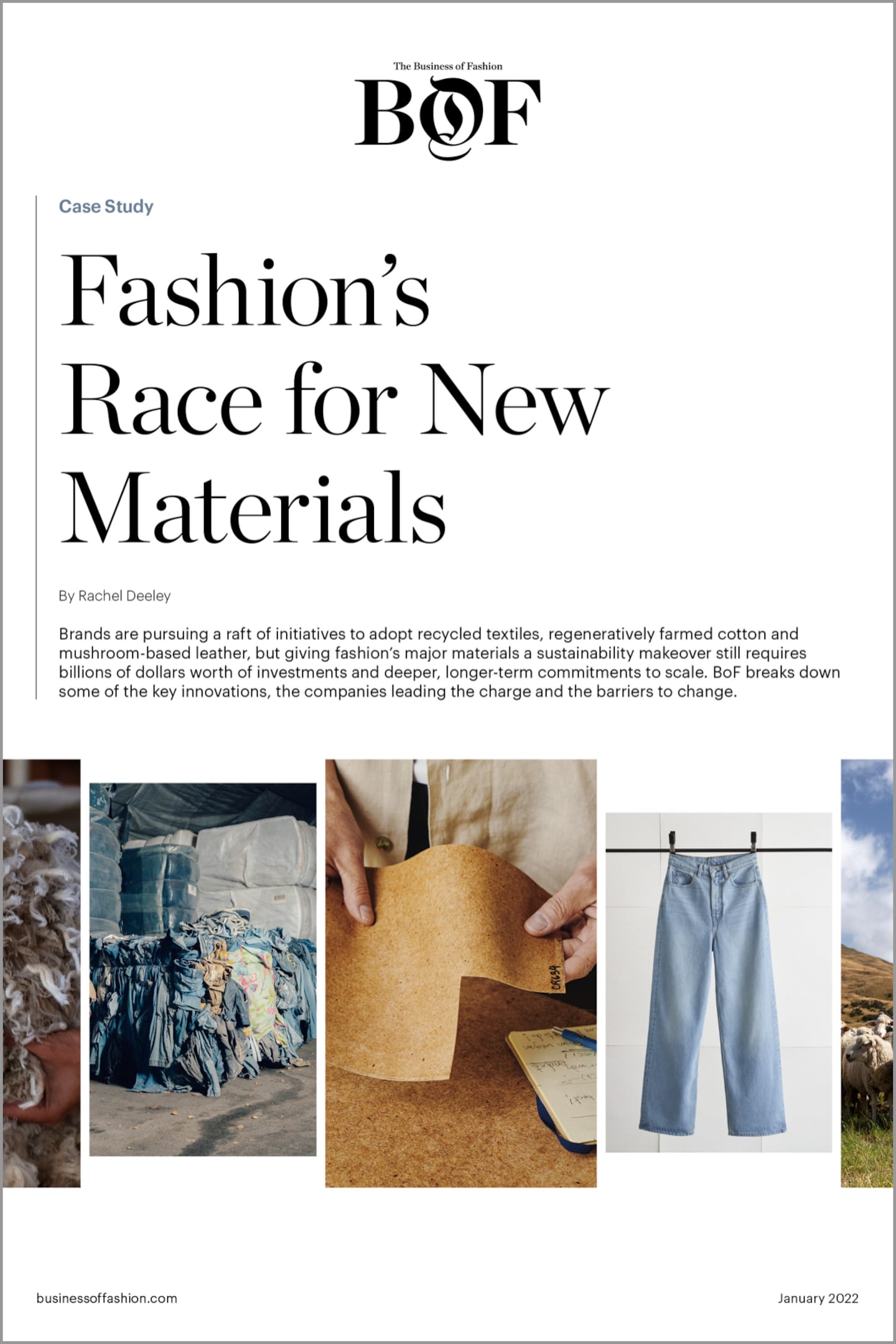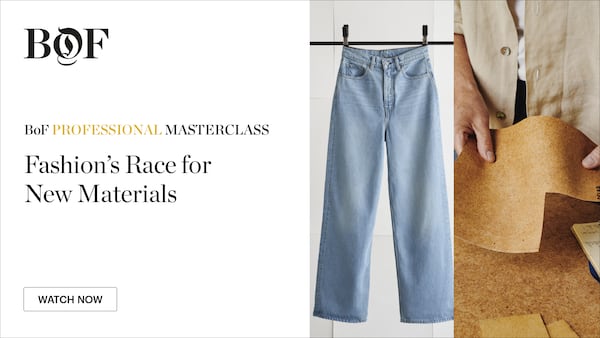
The Business of Fashion
Agenda-setting intelligence, analysis and advice for the global fashion community.

Agenda-setting intelligence, analysis and advice for the global fashion community.

Hermès is a luxury brand that prides itself on being steeped in heritage and traditional craftsmanship. So when it emerged in 2021 that the maker of the iconic Birkin bag was working on an experiment with MycoWorks, a Californian start-up that manufactures a new mushroom-based alternative to leather, it sent a powerful signal to the rest of the industry: change is coming.
Fashion joins countless other industries to play a role in global sustainability efforts, racing towards targets to slash greenhouse gas emissions within this decade and grappling with waste, water usage and the negative social outcomes of poorly traced supply chains. While estimates of fashion’s contribution to the climate crisis vary, industry body Global Fashion Agenda (GFA) and consultancy McKinsey & Company place it at roughly 4 percent of total global emissions. Raw material production alone accounts for 38 percent of the fashion industry’s total emissions, their analysis found. In 2018, that amounted to some 800 million tonnes of carbon dioxide equivalent.
For some companies, the materials shakeup that Hermès is signalling has the potential to be radical. After all, fashion has long relied on largely the same roster of materials — notably polyester, wool, cotton and leather — to produce clothes, footwear and accessories. Entire companies’ design, supply chain and manufacturing strategies have been built around these materials.
While Hermès is breaking with tradition on just one bag for now, other fashion brands are pushing further ahead to transform how they manufacture and use materials that are more environmentally and socially sustainable.
ADVERTISEMENT
Some companies, including German sportswear brand Adidas, have vowed to eliminate virgin polyester, using recycled resources for the fabric instead. Others like US outdoor wear company Timberland have committed to source cotton, leather, wool and rubber from regenerative farms, focusing on responsible land management and positive ecological outcomes. Others are turning to alternatives to virgin animal leather, with Danish brand Ganni phasing out the material altogether in an effort to cut its overall carbon footprint.
The race to develop new materials and processes is gaining momentum thanks to fast-maturing technology and more substantial, profound partnerships between brands and innovators, which often used to be “slow on the action front,” said Georgia Parker, innovation manager at sustainable project accelerator Fashion for Good.
However, there are significant challenges to overcome, including competing with incumbents to achieving sufficient scale. Material innovators — from textile recyclers to mycelium growers — need upfront capital to build capacity. Brands can help support this growth through minority equity investments or by making long-term buying commitments.
While the buzz around new materials is helping them gain traction, billions of dollars worth of additional capital and further innovation are needed to achieve the industrial scale that would enable alternative materials to compete in a system designed to maximise business growth and profit, rather than minimise negative environmental impact.
Understanding which, if any, of these sustainable materials will spur a paradigm shift to generate widespread adoption of sustainable materials is not straightforward.
This case study examines three innovations in raw materials production that are gaining some traction and offer opportunities for the fashion industry to reinvent the destructive materials and practises on which it has long relied.

The industry needs to ditch its reliance on fossil-fuel-based materials like polyester in order to meet climate targets, according to a new report from Textile Exchange.
Cotton linked to environmental and human rights abuses in Brazil is leaking into the supply chains of major fashion brands, a new investigation has found, prompting Zara-owner Inditex to send a scathing rebuke to the industry’s biggest sustainable cotton certifier.
Over the last few years, the run-up to Earth Day has become a marketing frenzy. But a crackdown on greenwashing may be changing the way brands approach their communications strategies.
This week, Sephora announced plans to double down on ‘green’ and ‘clean’ product labels, leaning into an increasingly risky marketing tactic even as a greenwashing crackdown has prompted other brands to pull back.